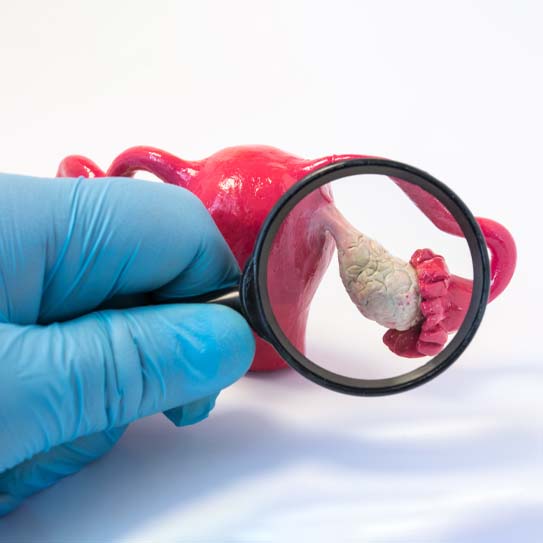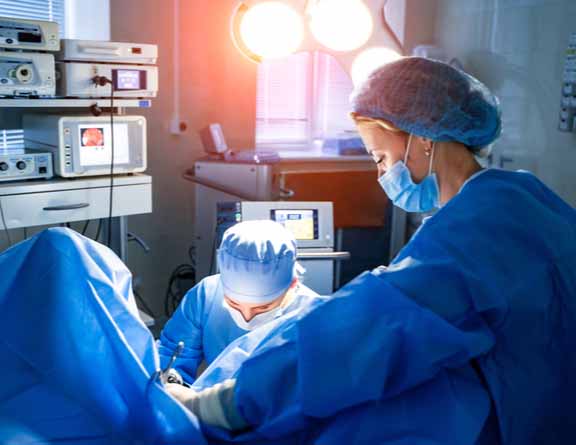How do gynecologists treat ovarian cysts?
If your ovarian cyst is not causing pain or other symptoms, your gynecologist will initially choose to monitor your ovarian cyst. But if an ovarian cyst continues to grow in size and does not resolve itself within a few months, your gynecologist may recommend a treatment to remove the cyst. Most gynecologists in Allahabad recommend laparoscopic surgery for ovarian cyst removal, which is a minimally invasive procedure that involves making a small incision in the abdomen.
Laparoscopic ovarian cyst removal is a less invasive surgical procedure and is done as keyhole surgery through 2 to 3 small incisions in the abdomen. A laparoscope with a camera on its end will be inserted through one of the incisions so that the surgeon can view and access the areas without making large incisions. The surgery will be performed under the influence of anaesthesia, so the patient will not feel any pain or discomfort. The surgeon will carefully examine and remove the cysts and the incisions will be then closed with sutures.
How to prepare for ovarian cyst removal surgery
In most cases, ovarian cyst removal surgery is an elective surgery that’s scheduled through your doctor’s office in advance. You should expect to take a few days off from the work for this procedure and the recovery period after completing the process. You need to keep in mind the following points when preparing to undergo ovarian cyst removal surgery.
- You may be asked to stop taking certain medications such as aspirin, ibuprofen (Advil, Motrin), naproxen (Aleve, Naprosyn), clopidogrel (Plavix), warfarin (Coumadin), and other blood thinners.
- Ask your doctor which drugs you should take on the day of the surgery.
- Take the medicine your doctor has told you to take with a small sip of water.
- Inform your doctor if you have a bleeding disorder or any medical conditions.
- You will have blood samples taken if you need a blood transfusion post-procedure. However, it depends on the surgical procedure used to remove the cysts.
- Stop smoking and drinking alcohol as they may lead to certain complications.
- After midnight or the night before your surgery, you will be asked not to eat or drink anything.
- Your doctor or hospital staff will inform you when to reach the hospital on the day of your surgery.
Advantages of undergoing laparoscopic ovarian cyst surgery over open surgery
- Shorter hospital stay
- Quick recovery
- Reduced bleeding and tissue handling during the surgery
- Minimising risk of scar-tissue (adhesion) formation after the surgery
- Better visualisation and access to the internal organs for the surgeon
- Less postoperative discomfort and pain
- Reduced risk of infection and thromboembolism (blood clot in the legs or lungs)
- Minimal scar after recovery.
- Faster return to office work and normal life
Possible risks of ovarian cyst removal surgery
Like any other surgery, ovarian cyst removal surgery also has certain possible risks such as:-
- Scar tissue (adhesions) may form at the surgical site, ovaries, fallopian tubes, or pelvis.Infection
- Damage to the bowel or bladder
- The pain post-procedure may not be controlled
- Ovarian cysts may return after surgery








.svg)









